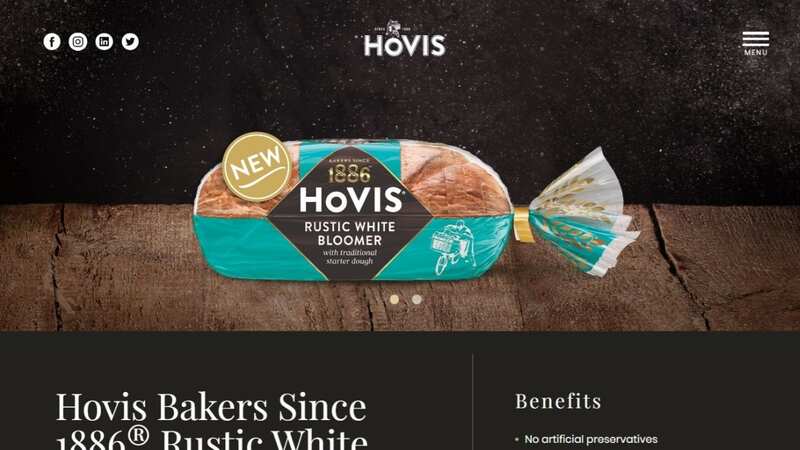Hovis cleared over 'rustic' and 'authentic' bread adverts after complaints

Adverts for Hovis bread touted as 'rustic' and 'authentic' have got the all-clear from a regulator.
The ads were under scrutiny following complaints about how the bread is made using machinery and has "artificial" ingredients. This comes after three web pages and an Instagram post in September advertised Hovis Rustic White, Rustic Granary, and Rustic Seeded Bloomer.
They claimed the loaves had been "created by our expert bakers using a traditional starter dough for more flavour and formed into an authentic and distinctive bloomer shape". The ads boasted the benefits of the loaves as "no artificial preservatives" and "baked with a traditional starter dough for more flavour".
They also included an ingredients list with emulsifier E472e and ascorbic acid, also known as Vitamin C, which they use to treat the flour. A group called Sustain's Real Bread Campaign was not happy, believing that the bread is machine-made and contains "artificial preservatives".
They complained to the Advertising Standards Authority (ASA) about the misleading ads. In response, Hovis pointed out that according to the Cambridge Online Dictionary, 'rustic' means "simple and often rough in appearance; typical of the countryside".
 Asda praised over inclusive kids clothing range with holes for feeding tubes
Asda praised over inclusive kids clothing range with holes for feeding tubes
What's more, they reassured everyone that none of their rustic bloomers are made using the controversial Chorleywood process, which involves high-speed mixing and conditioner. Hovis explained that they used the word "authentic" only in a limited way, referring to the bloomer shape of the bread and not the whole product.
They also said the term "traditional" was appropriate when talking about the starter dough The company clarified that it did not describe the bread as "artisanal" or "made by artisans".
Instead, they said the language made it clear that the product was simply influenced by artisans. Hovis added that customers easily understood this difference. Hovis also talked about E472e, a food additive number for DATEM short for diacetyl tartaric acid ester of mono- and diglycerides.
This is the most commonly used emulsifier in bread products and is recognised as a dough conditioner. Hovis explained that it wasn't added as a preservative. They also mentioned that ascorbic acid is classified by the Food Standards Agency as an antioxidant, not a preservative.
The ASA didn't agree with any part of the Real Bread Campaign's complaint. They ruled that because Hovis is a well-known brand, the ads were on their own website and Instagram page, and the products were shown in plastic packaging, customers would understand that the products had been made on a large scale.
The regulator added: "Furthermore, we considered that consumers would understand that the products had been produced on an industrial scale and therefore probably contained some additional ingredients other than the basic ingredients required to make bread."
The ad watchdog said: "Because the breads did not contain any preservatives and the lists of ingredients were presented clearly alongside the claim which made clear that they contained other additives, we concluded that the claim 'no artificial preservatives' was not misleading."
Chris Young from the Real Bread Campaign commented: "Shoppers need clear, honest information in order to make better-informed choices. When corporations use language like 'artisan' or 'authentic', they are implying the product is produced to better standards."
He added: "In our view people are having the wool pulled over their eyes, which is made even worse when they're being charged higher prices for supposedly 'premium' products that are arguably little different from other industrial loaves."
Read more similar news:
Comments:
comments powered by Disqus

































